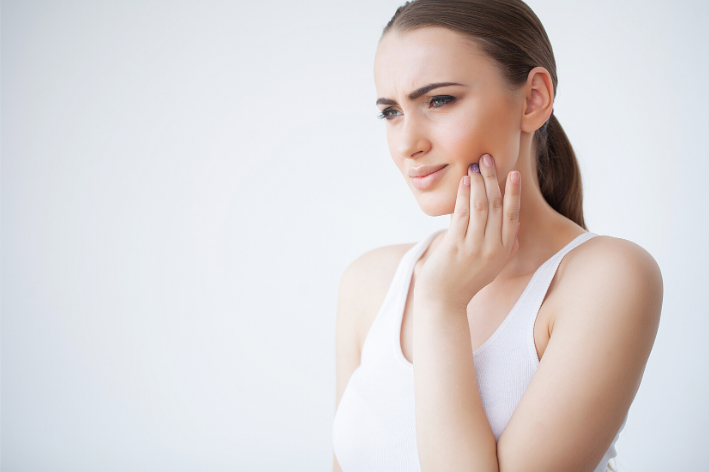The temporomandibular joint (TMJ) is more commonly known as the jaw. This joint has a hinge like structure where the mandible (jaw bone) articulates with the skull. In between the two joint surfaces is a disc which is designed to reduce and disperse load transferred from the jaw to the skull when eating.
Causes of TMD (temporomandibular disorder)
Trauma to the mandible, whiplash injuries, genetic factors and poor habitual eating and talking behaviours can contribute to TMJ dysfunction or temporomandinbular disorder (TMD). Poor habitual behaviours such as bruxism (clenching,/grinding) can have an effect on your joint as well as poor biomechanics within the muscles of mastication (eating/chewing). The temporalis muscle, lateral and medial pterygoid muscles, and masseter muscle, can become overactive and tight, leading to uneven forces around the TMJ.
It is important to note that clinically, neck injury and pain can also contribute to TMJ symptoms. Pain from your neck can be referred into the jaw, or stiffness in your neck can assist in poor TMJ biomechanics. Your wisdom teeth also sit deep to the masseter muscle (predominant jaw clenching muscle), and occasionally wisdom tooth infections can be mistook for jaw pain (and vice versa).

Symptoms
TMD sufferers will often present with pain in the jaw. Occasionally that pain will also radiate up towards the skull, into the ear, down the jaw line, or into the teeth. Tenderness can commonly be felt over the jaw area, ear, temple, sinuses and around the eyes. TMD sufferers can have a restriction in movement of the jaw, an uneven opening/closing motion of the jaw or clicking noises in the joint. If the damage to the disc is more severe the jaw can lock into position.
Treatment
Treatment for TMD can vary from oral splints, cognitive behaviour therapy, pain medication, physiotherapy and surgery. Physiotherapy can be beneficial in promoting joint and muscle performance. By assessing the joint movement and surrounding tissues, you can get a better understanding of some of the contributing factors to your jaw pain and habits. Manual therapy and massage therapy can be effective in releasing your jaw tension and reducing your pain – as well as preventing further damage to your disc. If the TMJ disc becomes completely dislodged surgical intervention may be necessary.



